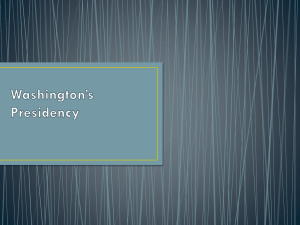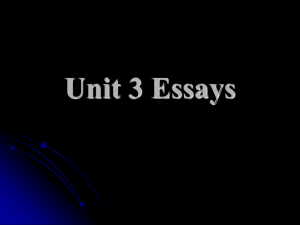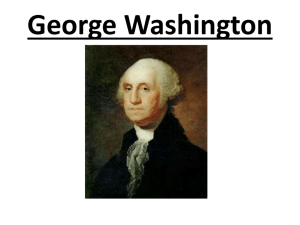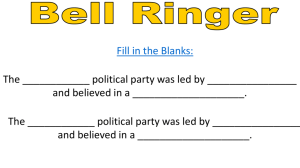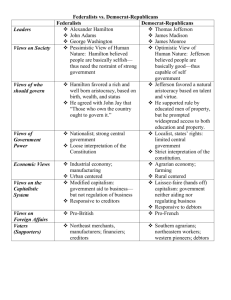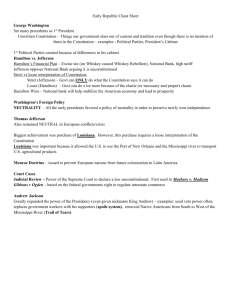Hamilton vs. Jefferson Views on Human Nature
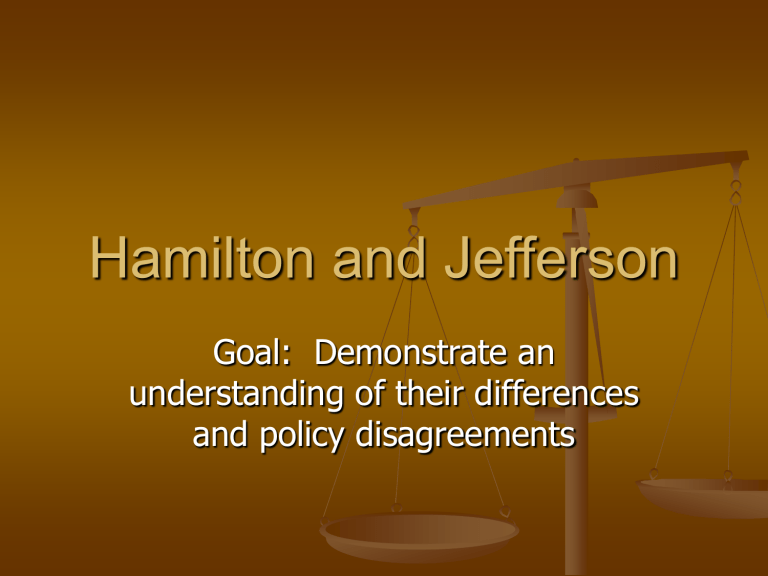
Hamilton and Jefferson
Goal: Demonstrate an understanding of their differences and policy disagreements
Contrasting Secretaries
Sec. Hamilton and Sec. Jefferson disagreed on most issues. They disliked and distrusted each other. The policies they disagreed on resulted in the formation of the first political parties in the
U.S.: the Federalists and the Democratic-
Republicans.
Directions
Directions: Visit each station and Take
Notes on both political leaders.
Include details, quotes, facts, dates, key events
If you have extra time, visit the challenge station!
Explain chart and stations
Hamilton vs. Jefferson
Personal Background
No $ or family connections
Northerner
Highly intelligent
Aide to General
Washington
New York Congressman
Delegate to
Constitutional
Convention
From wealthy family; inherited land
Southerner
Highly intelligent
Tobacco farmer
Wrote Declaration of
Independence
Minister to France during Revolution
Hamilton vs. Jefferson
Views on Human Nature
People are selfish
Informed citizens can make good decisions for country
Don’t trust government to “the mob” (the common people)
Faith in farmers and common people
Hamilton vs. Jefferson
Best Form of Government
Federalist Party
Strong national govt. needed to unite the states and strengthen the country
The wealthy and educated class should govern for all
Democratic-
Republican Party
Strong state govts. are best b/c they are closest to the people and prevent monarchy
The common people should govern themselves
Hamilton vs. Jefferson
Ideal Economy
Promote business, manufacturing & trade
Pay off war debts
National bank needed to collect taxes, make single currency, and lend $
Promote agriculture
(farmers are honest, cities are corrupt)
A national bank was dangerous; would trample on the authority of states, favor North over
South, and favor business over farmers
Video Clip
Washington’s first cabinet meeting.
Hamilton and Jefferson are arguing over the need for a national bank.
What is Hamilton’s argument?
What is Jefferson’s argument?
Video Clip
Hamilton vs. Jefferson
Relations with Britain and France
Support Great Britain
GB our most important trading partner
Support France; they supported us
French Revolution supports liberty & equality, as ours did
Hamilton vs. Jefferson
View on the Constitution
Loose Construction:
Flexible/broad interpretation of national powers
Necessary & Proper
clause allows national govt. to do things not mentioned in the
Constitution (e.g. national bank)
Question: Which expressed powers might make a natl. bank
“necessary & proper”?
Strict Construction:
Narrow interpretation of national powers
Stick to the powers outlined in the
Constitution, not create new ones (e.g. bank not necessary to tax, print $, or borrow)
10 th Amendment reserves rights not listed to the states and the people


